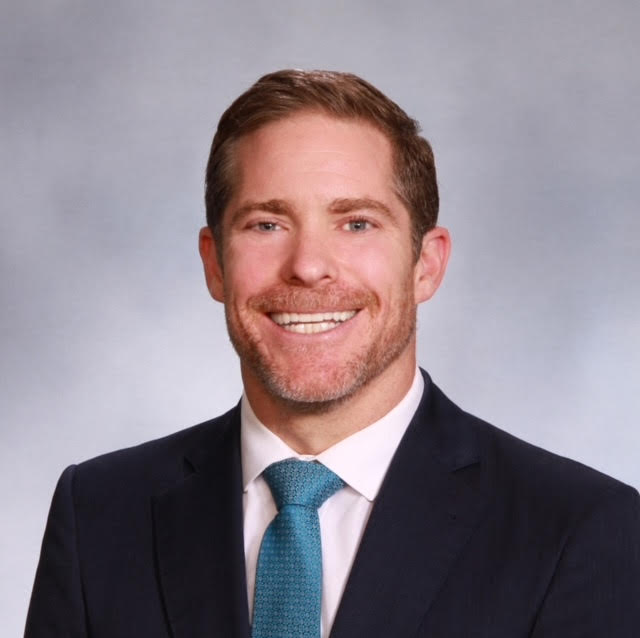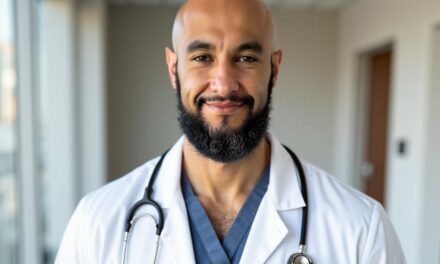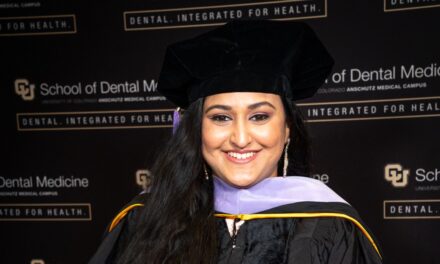Richard Birkett is a highly skilled and team-oriented Colon and Rectal Surgeon with additional expertise in General and Trauma Surgery based in Greater Boston. He specializes in minimally invasive robotic and laparoscopic surgery. He focuses these advanced techniques toward the treatment of colon and rectal cancer, diverticulitis, GI immunologic diseases, benign diseases of the GI tract, and anorectal diseases. In addition, he has a background in academia, authoring multiple peer-reviewed manuscripts and book chapters. He is also committed to surgical education and is the site director for surgical residents.
Dr. Birkett holds both an MD and MBA, which enhances his expertise in medical device marketing, product development, business development, and evaluation. He is also experienced in developing and executing Sustainability/ESG programs in healthcare and the device industries. His proficiency in team leadership, peer-to-peer communication within multi-disciplinary teams, complex problem-solving, and patient advocacy is well recognized.
In addition to his professional achievements, Dr. Birkett is an avid athlete, having completed multiple Ironman races in 2012, 2021 and 2022, and half Ironmans in 2013 and 2024. He also runs marathons, often for charitable causes, including the Boston Marathon in 2017 for Plan International and the upcoming NYC Marathon for Camp Shriver. His dedication to both his profession and charitable athletic pursuits exemplifies his commitment to excellence and community service.
What advice would you give your younger self?
Patience is key, and trusting the process is essential. When I was younger, I wanted to reach milestones quickly, but real growth takes time and consistency. Some of the most valuable lessons come from challenges and setbacks, which ultimately shape your future success. I would also advise my younger self to find mentors early on. Their guidance can help you avoid pitfalls and accelerate your personal and professional development. Lastly, collaboration is crucial—medicine is a team effort, and strong professional relationships can open doors you didn’t even know existed.
What’s one strategy that’s helped you advance your career?
Surgery is a team sport. Building strong relationships and mentorship has been pivotal to my career success. Fostering relationships with peers, learning from leaders, collaboratin with young surgeons, and establishing rapport with patients are all vitally important. I also invest time in collaboration and knowledge-sharing with colleagues, which has helped me stay current with surgical innovations. By surrounding myself with talented individuals, I’ve been able to learn and grow continuously. These relationships have provided not only professional opportunities but also a strong support system that has helped me navigate the challenges that come with my profession.
What’s the best $100 you’ve recently spent?
The best $100 I’ve spent recently was a donation to Camp Shriver, a charity that promotes inclusion for children with intellectual disabilities. I run marathons for them, and every contribution supports sports programs that give these kids access to enriching activities they might not otherwise have. It’s a cause that’s close to my heart, and knowing that my donation helps bring joy to these children is incredibly rewarding. I can’t think of a better way to spend money than on something that creates a positive impact in someone else’s life.
What’s something you believe that few others do?
I hold the belief that failure is just as valuable as success. Many people avoid or fear failure, but I see it as one of life’s greatest teachers. Failure forces you to re-evaluate, adapt, and improve. In surgery, the stakes are high, and the ability to learn from mistakes can be the difference between a good outcome and a great one. Embracing failure builds resilience and sharpens your problem-solving skills. I’ve found that my most significant growth often stems from failure, and I encourage others to view it as an opportunity for learning.
What software do you use to stay productive, and how does it help?
I find video review of my surgeries and cases to be most helpful. On behalf of my patients, I am continuously committed to new ways to improve care. Case review allows the time and platform to consider new techniques and strategies to make tomorrow’s surgery better than yesterday’s.
How do you turn your ideas into reality?
Collaboration and open discussion are the cornerstone of my approach. Many of my ideas arise from clinical challenges or patient needs. I discuss them with colleagues and or industry professionals to refine them. Feedback is crucial—whether from peers or patients. If an idea shows promise, I discuss it with my team, incorporating their insights to make it even better. This constant refining process helps turn concepts into practical solutions that benefit both patients and the broader medical community.
What emerging trend are you most excited about?
The advancement of AI and robotics in surgery is particularly exciting to me. Robotic surgeries are becoming increasingly accurate, leading to quicker recovery times and better patient outcomes. Similarly, AI is enhancing diagnostic tools, enabling personalized treatment plans and improving overall patient care. This trend has the potential to reshape the healthcare landscape in ways we’re only beginning to understand. By integrating these technologies into my practice, I’m able to deliver better results for my patients while also staying ahead in the constantly evolving field of medicine.
What do you do when you feel overwhelmed or lose focus?
When I’m feeling overwhelmed, I take a step back, take a wider perspective of a situation, and take a moment to make sure my priorities are in order. Then I turn my attention to those I can help. I frequently volunteer my time to those in need or can even just spend time helping those in my personal family/friend group. Quiet and meaningful moments with my family and kids rejuvenate my energy and align my focus. Ensuring physical and mental health is also vital. Exercise always leaves me feeling more focused and energized, and is a great way to feed the creative, optimistic part of my brain. These measures provide me the ability to control the situation and refocus my energy, preventing the stress from becoming paralyzing.
What habit contributes most to your productivity?
Exercise is my anchor—it helps me stay mentally sharp and physically energized. A good workout prepares me for a day filled with complex surgeries and patient consultations. Beyond physical activity, mindfulness also plays a significant role in my productivity. Staying present during surgeries and meetings allows me to focus on the task at hand without being distracted by external factors. Together, these habits ensure I maintain peak performance, which is essential in my role as a surgeon and leader. They help me stay grounded while navigating a demanding profession.
What’s one thing you do consistently that others should try?
I recommend practicing reflection regularly, whether through journaling, meditation, or taking a few moments at the end of the day to think about what went right and what didn’t. For me, reflecting on surgeries and patient interactions helps fine-tune my approach for future cases. It’s not about self-criticism but about continuous improvement. Reflection helps create a learning loop that allows you to get better over time, both professionally and personally. This habit is invaluable in maintaining growth and can benefit anyone, regardless of their profession or life stage.
What does your day typically look like, and how do you stay productive?
Up early to exercise before the rest of the family wakes up. I then take my dogs out for a walk and/or run so they can start their day similarly! We all head up to get my son and daughter going before I head to the hospital! After seeing patients in the hospital, I will spend the workday either performing robotic or other operative surgeries, performing colonoscopy in the endoscopy suite, or seeing patients in one of two clinic locations. Staying productive involves prioritizing tasks and smart scheduling to best utilize my time to best serve my patients. I sometimes need to adjust the schedule to divert my attention to emergencies that present themselves. If I have time at the end of the day, I will try and make patient phonecalls and address any outstanding work priorities. My evenings are for family time and reflection, helping me maintain a healthy work-life balance and stay effective at work.
Key Learnings:
- Failure is a valuable tool for growth; embrace it rather than fear it.
- Relationships, collaboration and mentorship are vital to success in any career.
- Regular reflection and review can help you improve and stay grounded.
- Staying physically and mentally healthy are fundamental necessities to being a helpful doctor, surgeon and human.
- Advances in AI and robotics hold tremendous potential for healthcare transformation.
- Finding meaning in time with friends/family, hobbies and getting to know your patients are cornerstones that ultimately translate to excellent care and enjoyment in the practice of surgery




